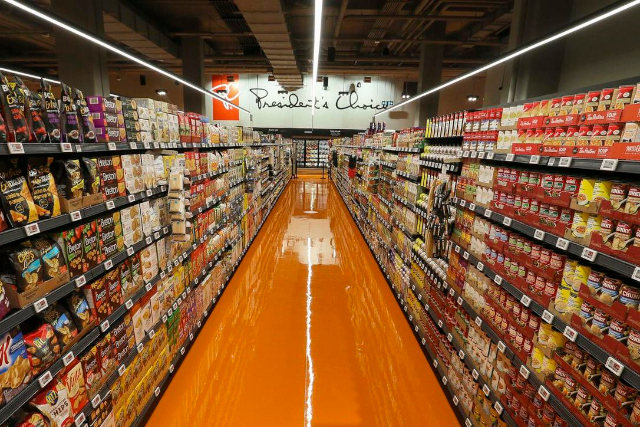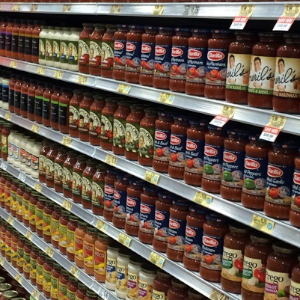A report from the Competition Bureau of Canada released a few days ago says we need more competition in food retailing. Too few companies control too much of the market. And the report includes several recommendations that could achieve that…
 Loblaws, along with Sobey’s and Metro, control the vast majority of supermarkets…
Loblaws, along with Sobey’s and Metro, control the vast majority of supermarkets…
Someone recently coined the term ‘greedflation’ to describe the tendency of huge grocery conglomerates to show increased profits even as food price inflation soars. The rate of food price inflation has stabilized in most parts of the country, but prices have only fallen a little bit, if at all.
The Competition Bureau of Canada released a new report last week highlighting the concentration of food retailing in just a few corporate hands as the main cause. And the Bureau offered some recommendatio0ns for fixing the problem.
“Canada’s grocery industry is concentrated,” the report states. “It can be difficult for small and medium-sized businesses to compete effectively against Canada’s grocery giants. It is also challenging for new businesses to enter the industry successfully. […] Without changes in the competitive landscape, Canadians will not be able to fully benefit from competitive prices and product choices.”
Profits, margins up sharply
The report starts by observing that Canada’s three largest grocers — Loblaw, Sobeys and Metro — last year reported more than $100 billion in total sales and earned more than $3.6 billion in profits. But greedflation appears to have started before the COVID crisis. The report says the country’s largest grocers’ food gross margins have increased by about one or two percentage points since 2017. That may not seem like much, but the grocery business has traditionally operated on very thin margins – around 5 percent – so the proportional increase is significant.
Anthony Durocher, the deputy commissioner of the competition promotion branch, food rices have increased at their fastest rate in 40 years over the past decade.
More players needed
The report says ‘significant barriers’ barriers exist keeping smaller, independent grocers down, and discouraging international grocery chains from entering our market.
For one thing, many independent retailers are forced to source products from their competitors’ wholesale divisions. They can’t afford to run their own import and distribution systems.
“Independents play an important role in communities across Canada,’ The report says. “But without government support, we should not expect them to significantly expand in the near future,” the report states. “The entry of new competitors and growth of existing independents would increase competition, empower consumers, and drive businesses to lower prices, improve product quality, and innovate.”
More price comparison info needed
“Competition works best when consumers know where to get the best deals,” the report states. That’s obvious. But how do we improve on the price comparison tools already mandated in the grocery sector?
The report says a greater emphasis should be placed on posting unit prices for grocery commodities. While come grocery retailers have voluntarily instituted unit pricing info on the shelf labels for most products, unit pricing is only mandatory in Quebec. By contrast, it’s nationally mandated in New Zealand, Australia, and the U.K.
A previous report suggested standard-sized packages for products, which would further help consumers make informed decisions.
Softball, by comparison
The Competition Bureau’s recommendations seem mild by comparison to those already being mandated in other countries. Observers say there’s no guarantee that the measures the Bureau has recommended will have the desired effect. If they are, in fact, acted upon.
The French Government has taken a tough line on food price inflation, demanding that the major food companies there reduce prices of key food products as of the beginning of this month. It’s the most radical move by any government so far.
But France has seen the worst food price inflation of any European country. And the current French government has made a reputation for acting decisively to deal with major issues. Among other European nations, only Hungary has so far enacted any kind of price ceilings.
I can’t help but wonder what it will take to get the Canadian Government to follow suit?
~ Maggie J.

